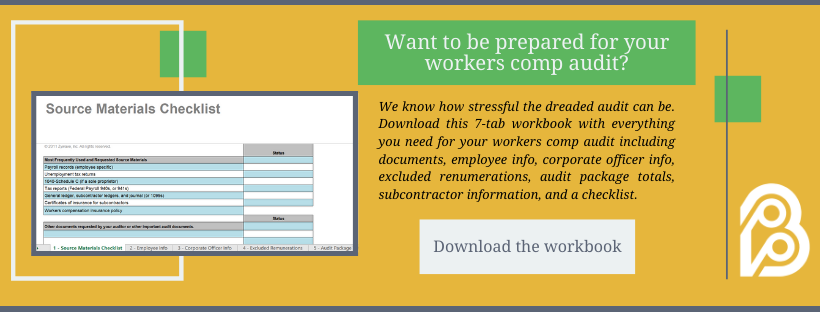Do I Need Workers’ Comp if I am a Remote Worker, Independent Contractor, or Sole Proprietor?
In this digital age, the standard 9 to 5 job at the office isn’t always the norm anymore. Remote workers, independent contractors, and other unconventional work roles are on the rise, which means atypical work-related accidents and insurance situations are also surging.
So when an employee gets hurt on the job, but that job isn’t in the standard work environment, who covers medical expenses and lost wages? Does workers’ comp insure accidents outside of the office?
Many people assume that since they are not working at their actual business location, they do not need workers’ compensation … after all, if they were hurt outside of their work establishment, their health insurance would just cover, right?
Wrong.
At Berry Insurance, we’ve helped hundreds of businesses ensure they have coverage that adequately protects them and meets legal requirements. We don’t like to see clients stuck with complicated claims and bills they can’t afford, so we want to make sure you’re properly covered.
Let’s talk about what workers’ compensation insurance covers and why you probably need it, regardless of where you work.
Table of contents:
- What is workers' compensation and what does it cover?
- Do I need workers' compensation if I work from home/remotely?
- Do I need workers' compensation if I am an independent contractor?
- Do I need workers’ compensation if I am a sole proprietor?
- Ensure workers’ comp coverage from anywhere
What is workers’ compensation and what does it cover?
Workers’ compensation insurance covers medical payments and a portion of lost wages for employees who become injured or ill due to work-related causes.
If an employee gets injured lifting something heavy or slipping and falling on a wet floor, medical expenses and some lost wages would be covered by workers’ compensation.
If an employee becomes ill from being exposed to harmful chemicals on the job, that would also be covered by the insurance.
In Massachusetts, all businesses are required to have workers’ compensation insurance for their employees. Without coverage, employees could sue their employer for injuries or illness sustained on the job.
Do I need workers’ compensation if I work from home/remotely?
Workers’ compensation insurance accepts work-related claims, whether they occur in the office, during a business trip, while traveling, during an out of office meeting, or at home.
This means if an at-home employee gets hurt while performing a work-related task, he or she would be paid medical expenses and lost wages.
However, simply getting injured during work hours at home doesn’t make someone eligible for workers’ compensation benefits. The claimant will have to prove the injury was caused from a work-related task.
For example, if you’re working at home and you trip over your dog and get injured while on the way to a bathroom break, that would not be covered. However, if you trip over your dog while carrying work supplies, you might have a case.
Do I need workers’ compensation if I am an independent contractor?
The same applies for independent contractors.
In Massachusetts, all employers must purchase workers’ comp for all employees, whether part-time, full-time, etc. If an independent contractor is under an employer’s “direction and control” they most likely will be considered an employee, and thus covered by the employer.
If you’re an independent contractor, you should review your statement of work on contract with your employer to ensure they have coverage for you.
Volunteers and interns:
Like independent contractors, volunteers and interns (paid or unpaid) are also covered under the Massachusetts law.
Massachusetts employers must provide volunteers and interns with workers’ compensation insurance.
Do I need workers’ compensation if I am a sole proprietor?
Although sole proprietors are not working for an employer (who would typically provide workers’ comp coverage), sole proprietors should consider themselves their own employer. This means, yes, they should be providing worker’s compensation for themselves.
In MA, sole proprietors are not required to have workers’ comp for themselves, however, we recommend that everyone carry it because if they are injured while working, their health insurance may decide not to cover.
Why health insurance isn’t enough:
Health insurance policies don’t include work-related injuries, so if you get injured while working and do not have workers’ compensation (whether you’re a remote employee, independent contractor, or sole proprietor), you may be paying for all related medical expenses out-of-pocket.
Even a short trip to the emergency room for a few stitches could cost thousands, so it is crucial to have workers’ compensation insurance.
Ensure workers’ comp coverage from anywhere:
Remote workers, independent contractors, and sole proprietors may all have a more difficult time getting workers’ compensation claims approved because they must prove their injuries were work related.
Because of this, those who get injured while working outside of the office should report the incident and document any details thoroughly with medical records, photographs, and written documentation, when possible.
Your employer will need this information when filing a claim with their workers’ compensation insurance company.
Be protected outside the office:
While you may be inclined to think workers’ compensation isn’t necessary for remote workers, independent contractors, or sole proprietors, that is not the case. If you get injured while working, not only will you not have a separate insurance to cover it, but your health insurance may not even cover and you could be stuck with an enormous bill.
All employers should have workers’ comp to cover their employees, whether they are full-time, part-time, remote, independent contractors, interns or volunteers.
In addition to work-related injuries and illnesses, having these types of workers might cause additional liabilities for your business. If you employ remote workers, independent contractors, interns or volunteers, or are a sole proprietor, feel free to reach out so we can review your policy to ensure you are properly covered — We’ve helped hundreds of businesses secure all the business insurance needed to be protected.


.jpg)
